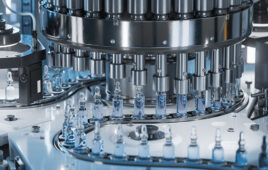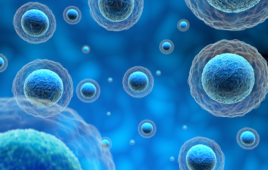 The popularity of CRISPR-based non-viral gene insertion techniques is fueling interest in CRISPR/Cas genome-editing technology that uses the homology-directed repair (HDR) pathway to insert DNA sequences.
The popularity of CRISPR-based non-viral gene insertion techniques is fueling interest in CRISPR/Cas genome-editing technology that uses the homology-directed repair (HDR) pathway to insert DNA sequences.
To respond to that demand, biotech services firm GenScript has introduced GMP-compliant single-stranded DNA (ssDNA) and closed-end linear double-stranded DNA (dsDNA) services.
The company’s GenExact ssDNA services support up to 5000 nt in length and 100mg per batch production scale. GenWand services offer closed-end, linear dsDNA up to 10,000 nt in length and gram level/batch production scale.
Launching the services at the American Society of Gene & Cell Therapy annual meeting, Piscataway, New Jersey-based GenScript now boasts a range of non-viral HDR payload materials for early discovery research, process development and clinical trials.
The company said the offerings would also help facilitate CAR-T drug development.
“This new investment by GenScript demonstrates our commitment to non-viral delivery technology. We look forward to continuing to work with our partners and stakeholders in academia and industry to support their cell therapy R&D programs and further development of non-viral delivery platforms and workflows,” said Ray Chen, president of GenScript USA Life Science Group in a news release. “We know this technology will be a more efficient and safer solution for cell engineering.”
GenScript notes that researchers at the University of California, San Francisco (UCSF) have used its CRISPR RNP technology to knock out endogenous T-cell receptors and integrate replacement anti-cancer receptors.
GenScript researchers worked with UCSF researchers to engineer modifications to the DNA payload to promote co-localization and delivery to the nucleus.
The company’s GMP-compliant facilities are equipped with ISO Class 7 cleanrooms and ISO Class 5 isolators supporting aseptic processing.
Filed Under: Cell & gene therapy, Drug Discovery and Development





Tell Us What You Think!
You must be logged in to post a comment.